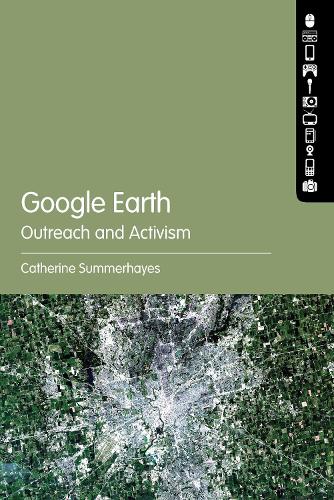
Google Earth: Outreach and Activism
(Paperback)
Available Formats
Publishing Details
Google Earth: Outreach and Activism
By (Author) Catherine Summerhayes
Bloomsbury Publishing PLC
Bloomsbury Academic USA
25th August 2016
25th August 2016
United States
Classifications
Tertiary Education
Non Fiction
Digital and information technologies: social and ethical aspects
Impact of science and technology on society
302.231
Physical Properties
Paperback
208
Width 152mm, Height 229mm
286g
Description
In order to be able to communicate and engage with each other via new communicative spaces such as Google Earth, we need to understand as much as possible about how they work as cultural texts: how and why we make them and how we respond to them. Launched in 2005, Google Earth is a virtual globe, map and geographical information program, mapping the Earth by the superimposition of images obtained from satellite imagery and aerial photography. By addressing the sociopolitical issues at stake in society's use of social websites, the author provides the first ever extended close reading of Google Earth as a powerful player in the communication realm of social media. By grounding the context of its military pre-history, its construction, its links to other similar world-making sites such as Google Maps and how it is perceived critically by social scientists, it is imperative to understand how social networking and information sites work in socio and geo-political contexts if society is to use these sites effectively and for the public good.
Reviews
How are we to think through 21st century visual regimes that have come to supplement perspective and realism Summerhayes goes beyond analyses of the new cartographies as tools of authority, exploring instead the new affective connections afforded by Google Earth, new ways of being human. Vital reading for those who work to make data social. * Sean Cubitt, Professor of Film and Television, Goldsmiths, University of London, UK *
An excellent volume and a strong contribution to the literature on the significance of digital platforms within contemporary media ecologies. Catherine Summerhayes develops an innovative and highly relevant approach to Google Earth based on the notion of affective engagement and employs a number of detailed case studies to suggest both the nature of the platform and its significance within contemporary mediated politics. * Craig Hight, Associate Professor of Screen and Media Studies, The University of Waikato, New Zealand *
Author Bio
Catherine Summerhayes is Adjunct Fellow in the School of Literature Languages and Linguistics, at the Australian National University, Australia. Her major research areas are in documentary film studies, new media theory and performance studies.
